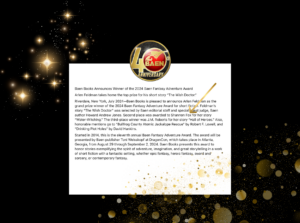A Lesson Before Dying by Ernest J. Gaines
A Lesson Before Dying, is set in a small Cajun community in the late 1940s. Jefferson, a young black man, is an unwitting party to a liquor store shoot out in which three men are killed; the only survivor, he is convicted of murder and sentenced to death. Grant Wiggins, who left his hometown for the university, has returned to the plantation school to teach. As he struggles with his decision whether to stay or escape to another state, his aunt and Jefferson’s godmother persuade him to visit Jefferson in his cell and impart his learning and his pride to Jefferson before his death. In the end, the two men forge a bond as they both come to understand the simple heroism of resisting—and defying—the expected.
One of my teachers in high school mentioned this as one of her particular favorite books. Well, either this or As I Lay Dying by William Faulkner. But I’m pretty sure it was this one.
I enjoyed this book much as I did To Kill a Mockingbird by Harper Lee and Native Son by Richard Wright. Which is to say, sadly and greatly. None of these books are particularly happy. But they all have a very important message for our culture. If you haven’t read any of these three, please mark them down at once.
The point of view of this book was interesting. It’s given from the perspective of a young, black schoolteacher in Louisiana in the 1940s. After Jefferson is accused of a crime there’s no proof he committed, the defense tries to argue his case for the jury. The defense compares Jefferson to an animal, arguing that he is not intelligent enough to have known what he has done. The defense compares Jefferson to a hog.
This argue sets the stage for the rest of the book. Jefferson’s godmother asks Grant Wiggins to go to the jail and talk with Jefferson, so that he shall walk to his execution as a man, not a hog.
Education and teaching are huge topics in this novel. I finished this novel around the same time I watched the first debate for this presidential election. Though education only came up briefly, reading this book really made me think about how education should be treated as more important as it is. This novel takes place seventy years. And seventy years ago, for a whole group of people, being well-educated was a huge deal. There’s a scene in which the white superintendent comes to visit Grant’s school. Grant tries to ask for more supplies and more books so he can teach the children properly. As you would expect, the man ignores him.
This situation should be a relic of the distant past of our country. But it’s not. Education is still not the great equalizer. The fact remains that, if you live in a wealthier area (which is usually synonymous with a large population of white people), you will be given a better education and will be set along a path towards greater success. If you live in the inner city or in low-income neighborhoods, you will not receive the same education.
One chapter of the book is given as a diary entry by the imprisoned Jefferson. The text is difficult to read, but as you slog through it, you realize exactly how disadvantaged Jefferson has been. He’s a smart man in that he can understand the simple truths, but he operates in a world where people work in abstractions. As you read this chapter, you wonder, much as Grant does, what chance does Jefferson or any of the children at Grant’s school stand against the well-educated man?
And yet, one of the most endearing passages, is the one where Grant finally gets through to Jefferson. And he does this by convincing him that Jefferson does have something to offer.
I need you…I need you more than you could ever need me. I need to know what to do with my life. I want to run away, but to go where and to do what? I’m needed here and I know it, but I feel that all I’m doing here is choking myself. I need someone to tell me what to do. I need you to tell me, to show me. I’m no hero; I can just give something small. That’s all I have to offer. It is the only way we can chip away at that myth. You–you can be bigger than anyone you have ever met….Please listen to me, because I would not lie to you now. I speak from my heart. You have the chance of being bigger than anyone who has ever lived on that plantation or come from this little town. You can do it if you try….And that’s all we are, Jefferson, all of us on this earth, a piece of drifting wood, until we–each one of us, individually–decide to become something else. I am still that piece of drifting wood, and those out there are no better. But you can be better. (193)




